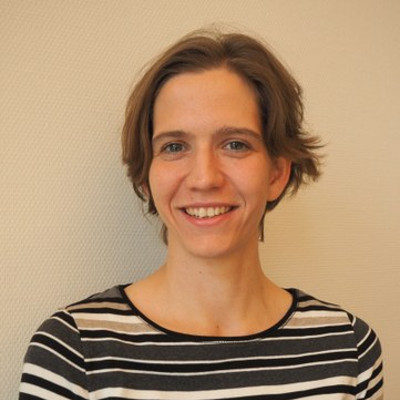Dr. Antje Sauermann
Humboldt-Universität zu Berlin
Institut für deutsche Sprache und Linguistik
Projects
C07
The impact of language ideologies on register distinctions in multilingual contexts
Contact
Humboldt-Universität zu Berlin, Dorotheenstraße 24, 10117 Berlin
+49 (0)30 2093 9675
https://orcid.org/0000-0002-8698-7402
Publications & Presentations
Mooshammer, Christine; Rotter, Stephanie; Lange, Robert; Norde, Muriel; Pescuma, Valentina Nicole; Adli, Aria; Bildhauer, Felix; Egg, Markus; Egg, Markus; Hülk, Kristina; Ito, Aine; Jannedy, Stefanie; Knoeferle, Pia; Knoeferle, Pia; Kordoni, Valia; Kutscher, Silvia; Kühnast, Milena; Liu, Mingya; Liu, Mingya; Lukassek, Julia; Lüdeling, Anke; Lütke, Beate; Lütke, Beate; Maquate, Katja; Maquate, Katja; Mooshammer, Christine; Mortezapour, Vahid; Müller, Stefan; Müller, Stefan; Patarroyo, Angela Giovanna; Plesca, Ana-Maria; Ronderos, Camilo R.; Sauerland, Uli; Sauermann, Antje; Schnelle, Gohar; Schulte, Britta; Schäfer, Roland; Schüppenhauer, Gediminas; Sell, Bianca Maria; Serova, Dina; Lehmann, Nico; Jannedy, Stefanie; Pankratz, Elizabeth; Adli, Aria; Adli, Aria; Adli, Aria; Adli, Aria; Adli, Aria; Adli, Aria; Adli, Aria; Adli, Aria; Adli, Aria (2023) Situating language register across the ages, languages, modalities, and cultural aspects: Evidence from complementary methods In: Frontiers in Psychology [DOI] [PDF] [ViVo] In the present review paper by members of the collaborative research center ‘Register: Language Users’ Knowledge of SituationalFunctional Variation’ (CRC 1412), we assess the pervasiveness of register phenomena across different time periods, languages, modalities, and cultures. We define ‘register’ as recurring variation in language use depending on the function of language and on the social situation. Informed by rich data, we aim to better understand and model the knowledge involved in situation- and function-based use of language register. In order to achieve this goal, we are using complementary methods and measures. In the review, we start by clarifying the concept of ‘register’, by reviewing the state of the art, and by setting out our methods and modeling goals. Against this background, we discuss three key challenges, two at the methodological level and one at the theoretical level: 1. To better uncover registers in text and spoken corpora, we propose changes to established analytical approaches. 2. To tease apart between-subject variability from the linguistic variability at issue (intra-individual situation based register variability), we use within-subject designs and the modeling of individuals’ social, language, and educational background. 3. We highlight a gap in cognitive modeling, viz. modeling the mental representations of register (processing), and present our first attempts at filling this gap. We argue that the targeted use of multiple complementary methods and measures supports investigating the pervasiveness of register phenomena and yields comprehensive insights into the cross-methodological robustness of register-related language variability. These comprehensive insights in turn provide a solid foundation for associated cognitive modeling.Sauermann, Antje; Schulte, Britta; Wiese, Heike; Sauermann, Antje (2023) Sprachkontakt in Namibia: Registerdifferenzierung im Namdeutschen In: Deutsch im Kontakt [ViVo] Das Deutsche in Namibia („Namdeutsch“) zeichnet sich gegenüber anderen außereuropäischen Varietäten des Deutschen durch den Gebrauch in informellen ebenso wie formellen kommunikativen Situationen aus (Kellermeier-Rehbein 2016; Riehl 2013, Shah 2007, Wiese u.a. 2017, Zimmer 2021).
Unser Beitrag präsentiert Ergebnisse zur Registerdifferenzierung unterschiedlicher sprachlicher Merkmale innerhalb des Namdeutschen auf der Basis von Korpusdaten aus dem DNam-Korpus (Wiese u.a. 2017; Zimmer u.a. 2020) und einer experimentellen Studie zur Wahrnehmung in formellen Registern. Wir diskutieren Unterschiede in der Registerdifferenzierung und lokalisieren die verschiedenen Arten sprachlicher Merkmaler auf einer Social Salience Hierarchy (Wiese et al. 2022), die Merkmale im Hinblick auf ihre Fähigkeit, soziale Bedeutung zu evozieren, ordnet.
Compared to other non-European varieties of German, German in Namibia ("Namdeutsch") is characterised by its use in both informal and formal communicative situations (Kellermeier-Rehbein 2016; Riehl 2013, Shah 2007, Wiese et al. 2017, Zimmer 2021).
Our paper presents results on register differentiation of different linguistic features within Namdeutsch based on corpus data from the DNam corpus (Wiese et al. 2017; Zimmer et al. 2020) and an experimental study on perception in formal registers. We discuss the differences in register differentiation between linguistic features using the Social Salience Hierarchy (Wiese et al. 2022), which distinguishes individual linguistic features based on their ability to evoke social meaning.
Wiese, Heike; Sauermann, Antje; Bracke, Y.; Bracke, Y. (2022) Coherence and language contact In: The Coherence of Linguistic Communities Orderly Heterogeneity and Social Meaning [DOI] [ViVo] This chapter investigates sociolinguistic coherence and differentiation in Namibian German (“Namdeutsch”), based on corpus data and a copy-editing task. The Namdeutsch speech community draws on a local Namibian identity as well as an ethnic German identity. At the linguistic level, this leads to a tension between a tendency for Namdeutsch to develop distinctive local features on the one hand and to remain close to standard German in Germany on the other hand, and this can interact with register distinctions. Data from the DNam corpus of German in Namibia shows that noncanonical local variants are primarily associated with informal registers but that some are also used in formal language. We hypothesised that variants with weaker overt reflexes, in particular, which we assumed to be of lower social salience, can enter formal registers. This was confirmed in a copy-editing task where Namdeutsch speakers were asked to correct a newspaper article. Taken together, our findings point to a broader Namdeutsch dialect that encompasses informal and formal settings in an orderly heterogeneity that is modulated by social meaning linked to local and ethnic identities and a hierarchy of sociolinguistic salience reflecting the overt manifestation of linguistic variables.Alexiadou, Artemis; Sauermann, Antje; Verhoeven, Elisabeth; Meyer, Roland; Meyer, Roland; Lütke, Beate; Lütke, Beate; Alexiadou, Artemis (2022) Multilingualism In: CRC 1412 - Fall Retreat 2022 [ViVo] Sauermann, Antje (2022) Multilingualism In: CRC 1412 – Spring Retreat 2022 [ViVo] Wiese, Heike; Wiese, Heike; Sauermann, Antje; Schulte, Britta (2021) Lexical vs. grammatical features in the perception of Namibian German In: German Abroad 4, Windhoek [ViVo]
Publications
Presentations
- Erstspracherwerb und Mehrsprachigkeit (Informationsstruktur, Diskursstruktur, Register)
- Einfluss kontextueller Faktoren im Spracherwerb und in der Sprachverarbeitung
- Forschungsmethoden: Blickbewegungsexperimente und Korpusanalysen